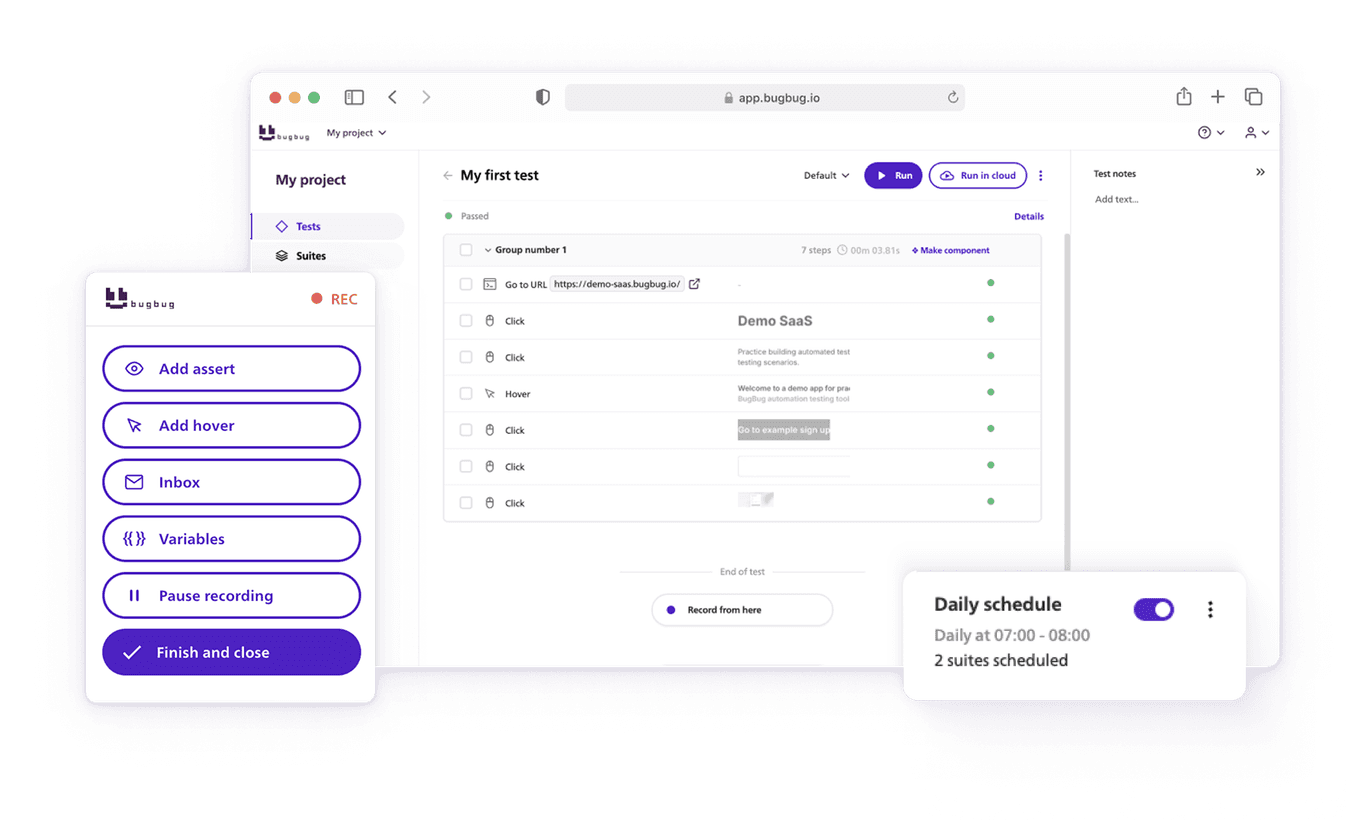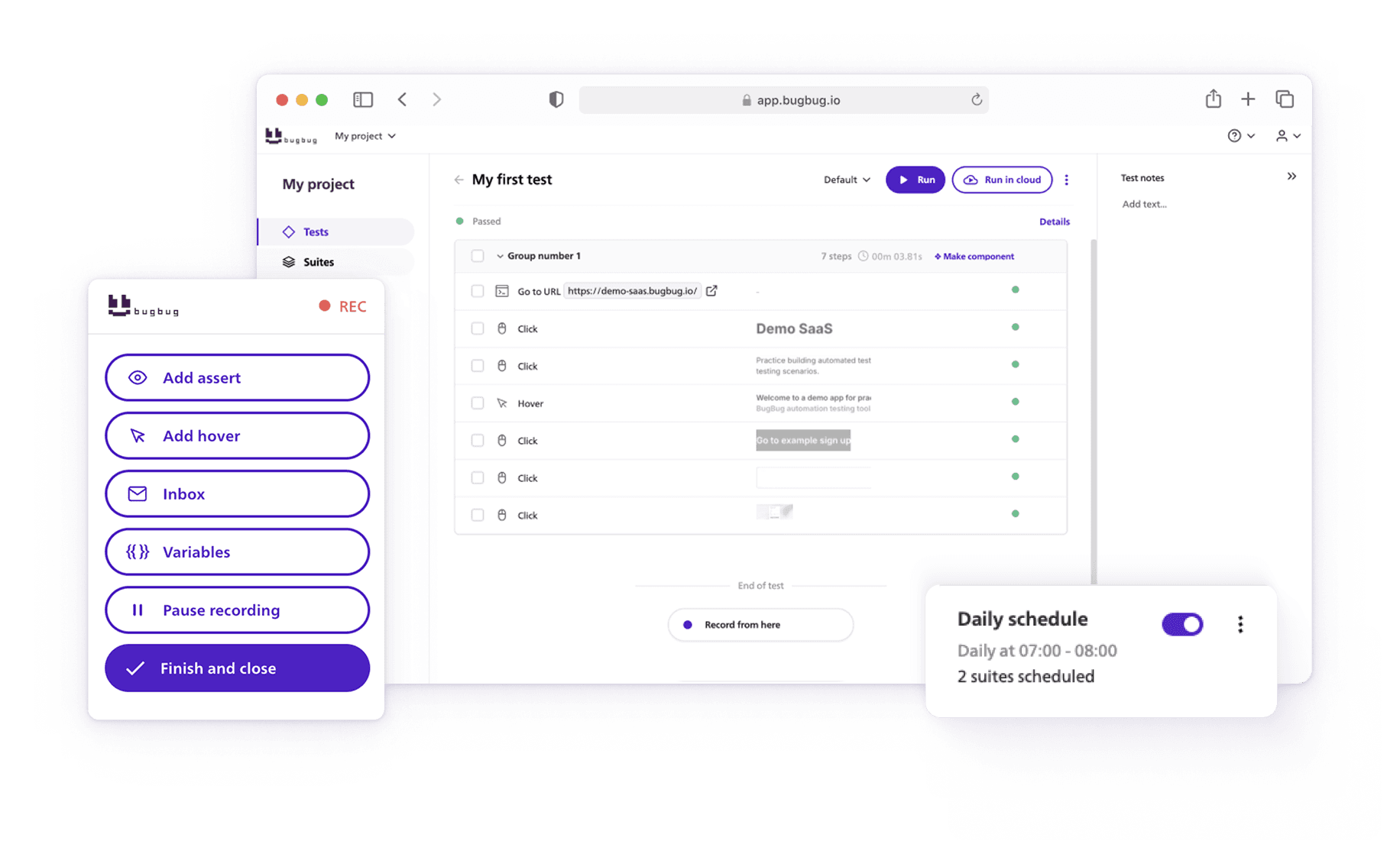Building fast is the startup way. But building fast and wrong is a surefire way to lose users, revenue, and trust.
Startups move at a faster pace than ever before. They’re often working with limited resources, full teams wearing multiple hats, and ambitious business goals. In such a startup environment, it’s tempting to skip or minimize the software testing process. But testing for startups is not just a technical checkbox—it’s a crucial role in ensuring long-term success. Investing time in thorough testing before launching your product not only enhances product readiness but also builds investor confidence and minimizes risks associated with market entry.
Whether you’re a co-founder, a product manager, or a manual tester, understanding the importance of a well-structured test plan can make or break your software product. From functional testing to usability testing, from manual testing to automated testing, each QA activity plays a critical role in aligning with user expectations and achieving continuous growth. Automated tests, in particular, can significantly enhance product quality and efficiency by automating repetitive tasks like regression testing.
- 🎯 TL;DR - Why Startups Need Software Testing
- 🚀 The Startup Reality: Move Fast, Fix Later?
- What Is Software Testing (And Why Should Startups Care)?
- What Happens When You Don’t Test?
- What Types of Testing Should Startups Prioritize?
- 🛠️ Lean Testing Stack for Startups
- 🧠 Testing = Faster, Not Slower
- Final Thoughts
🎯 TL;DR - Why Startups Need Software Testing
- Skipping testing in startups leads to costly issues like technical debt, lost users, and damaged trust—early testing prevents these pitfalls and supports long-term growth.
- Testing improves speed, not slows it down—automated and early QA helps teams release faster, reduce bugs, and avoid constant firefighting.
- Startups should focus on lean, impactful testing: smoke tests, automated end-to-end flows (with tools like BugBug), API testing (Postman), performance testing (k6), and cross-browser checks (BrowserStack).
- A lightweight testing stack is enough to start—free or low-cost tools can cover essential QA needs without a dedicated team.
- Testing is a growth enabler—it boosts product stability, user trust, and scalability. Make it part of your CI/CD process from day one.
Check also:
🚀 The Startup Reality: Move Fast, Fix Later?
Startups operate under intense pressure. You’re juggling limited budgets, small teams, and the ever-present need to ship features fast to prove product-market fit. With this pressure, it’s tempting to push testing aside in favor of quicker release cycles.
But here’s the harsh truth: every bug you skip now is a user you’re likely to lose later.
Effective communication and collaboration with clients during the testing phase are crucial. Direct interaction with clients helps clarify tasks and facilitates efficient processes, especially in dynamic environments like startups.
Unlike large companies, startups don’t have the luxury of multiple chances. A poor experience in the early stages of your product can erode user trust, hurt your reputation, and even tank your growth trajectory. Bugs or issues can directly deter potential customers from engaging with your brand or service.
The “fix later” approach often leads to:
- Increased technical debt
- Time-consuming hotfixes post-release
- Burnout from constant firefighting
- Missing security vulnerabilities, which can be identified through security testing
Testing early and often helps you move faster in the long run by preventing preventable mistakes and allowing smoother iterations.
Automate your tests for free
Test easier than ever with BugBug test recorder. Faster than coding. Free forever.
Get started
What Is Software Testing (And Why Should Startups Care)?
Software testing is the process of evaluating and verifying that your application does what it’s supposed to do. It involves running your app in different scenarios to find bugs, broken flows, and performance bottlenecks before your users do. Understanding client needs and expectations is crucial in the testing process to ensure the final product meets their requirements.
Why it matters:
- Prevent Bugs in Production: Catch issues in staging, not in front of your users.
- Improve User Experience: A polished product increases customer satisfaction.
- Support Faster Releases: Testing enables CI/CD, which speeds up development cycles.
- Enhance Security: Testing helps identify vulnerabilities before they become breaches.
Testers play a vital role in ensuring software quality and performance. By leveraging a large pool of testers, especially in tech startups, businesses can address diverse testing needs, enhance product functionality, and ultimately improve user experiences.
Testing isn’t just a safety net—it’s a feedback loop that powers quality, confidence, and growth.
What Happens When You Don’t Test?
Skipping testing doesn’t save time—it just delays problems.
Here are some common consequences:
- Broken Flows: A new release breaks user login or checkout flows.
- Revenue Loss: An undetected bug in the payment gateway causes failed transactions.
- Bad First Impressions: Early adopters leave due to usability issues.
- Increased Support Tickets: Your customer support team becomes a bug triage center.
- Security Incidents: A missed validation exposes sensitive data.
Startups rely on momentum. Each issue you fail to test eats away at that momentum. It is crucial to focus on the key aspects of software testing, such as efficient workflows and adaptability, to ensure product quality and scalability.
Our company plays a vital role in maintaining quality and user trust. By prioritizing thorough testing, we help prevent issues that could damage our reputation and customer relationships.
What Types of Testing Should Startups Prioritize?

Startups don’t need enterprise QA processes, but they do need a lean, effective testing strategy. QA activities are crucial in ensuring app compatibility and usability. Technology plays a vital role in enhancing software quality and improving testing processes. Here’s what to focus on:
1. Smoke Testing
Quick checks to ensure that the core features (signup, login, payments) work after every deployment. Think of it as your sanity check before hitting "Go Live."
2. Automated End-to-End Testing
Use tools like BugBug to simulate complete user journeys. Automate flows like “sign up → add item to cart → checkout” to make sure updates don’t break critical paths.
Check full guide on end-to-end testing.
3. API Testing
Use tools like Postman to ensure your API endpoints are working, returning correct data, and not breaking contracts between services.
4. Cross-Browser and Cross-Device Testing
Verify that your app works on Chrome, Firefox, Safari, mobile and desktop. Tools like BrowserStack give you access to real devices for compatibility checks.
5. Performance Testing
Simulate traffic with tools like k6 or JMeter to understand how your app performs under load. This is key for launches or marketing pushes.
Automate your tests for free
Test easier than ever with BugBug test recorder. Faster than coding. Free forever.
Get started
🛠️ Lean Testing Stack for Startups
You don’t need a full-blown QA team or enterprise software. Effective project management is crucial in a startup environment to ensure that development projects are launched quickly and resources are managed efficiently. Here’s a budget-friendly and scalable toolkit:
| Tool | Use Case | Price |
|---|---|---|
| BugBug | Codeless end-to-end web testing | Free Forever |
| Postman | API development and testing | Free Tier |
| Selenium | Scripted browser automation | Open Source |
| Lighthouse | Performance, SEO, accessibility | Free |
| BrowserStack | Cross-browser/device compatibility | Paid (Free Trial) |
Most of these tools offer generous free plans and support CI/CD workflows. You can start small and scale up.
Our company is dedicated to providing innovative testing solutions that contribute to positive customer experiences. By leveraging these tools, your startup can achieve high-quality delivery and optimal project outcomes.
🧠 Testing = Faster, Not Slower
There’s a myth that testing slows development.
In reality, testing helps you:
- Identify regressions faster
- Reduce the time spent on bug fixing
- Improve developer confidence
- Minimize production incidents
Automated tests play a crucial role in identifying regressions faster, especially in startup environments where resources are limited and changes are frequent.
It’s like having a spellchecker in your code—it prevents silly mistakes before they cost you hours.
Teams that automate key test cases early on find that they can deploy faster and more often with fewer rollbacks.
Testers are essential in ensuring software quality and performance, helping to minimize production incidents and enhance user experiences. Leveraging a large pool of testers can address diverse testing needs and improve product functionality.
Final Thoughts
Testing teams, or even a single QA specialist in early-stage startup projects, are responsible for identifying potential risks, ensuring software solution stability across operating systems, and delivering value without compromising quality. Both manual and automated testing help evaluate performance, functionality, and the overall user experience. The company plays a crucial role in ensuring that these processes are effectively managed to maintain high standards.
As startup companies scale, automation testing becomes essential for covering regression testing, accelerating the testing cycle, and enabling quick adaptation to significant changes. Manual testing remains valuable for exploratory checks and ambiguous situations where human judgment is key.
Many testing services, including crowdsourced testing and dedicated software testing services, now cater specifically to startups software testing needs. Leveraging these QA services means investing time in structured testing without needing to build a full team in-house.
Ultimately, software testing supports product management decisions, aligns with your business goals, and fosters customer trust. It allows you to maintain quality assurance standards and adapt quickly in the face of evolving technologies and user needs. If you’re serious about the success of your startup, don’t underestimate the value of thorough testing—including your own analysis and ongoing learning.
Testing is not an overhead. It’s a growth accelerator.
For startups, it’s the foundation of:
- Product stability
- User trust
- Scalable development
Whether you’re an early-stage founder or a growing SaaS team, make testing a core part of your development process. Start with essential tests, use codeless automation where possible, and integrate testing into your CI/CD pipeline.
Your users will thank you. Your developers will thank you. And your future self will thank you.
Ready to start testing?
Try BugBug — a lightweight, codeless test automation tool designed for startups and agile teams. Understanding the key aspects of software testing, such as efficient workflows and adaptability, is crucial for startups to scale and improve product quality.
Happy (automated) testing!



